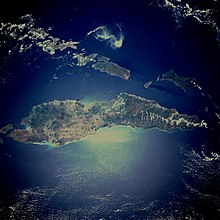This article relies largely or entirely on a single source .(June 2023) |

Belu (also Belos or Behale) [1] was the Portuguese name for eastern part of Timor island, which included the kingdoms of Wehali, Lichisana and Suai-Cabanaza. In 1756 the western part of Belu and West Timor fell to the Dutch.